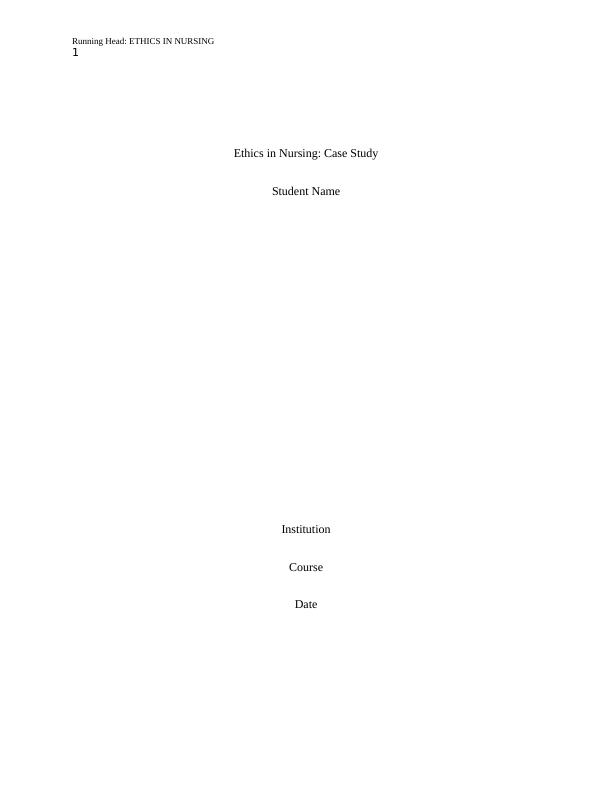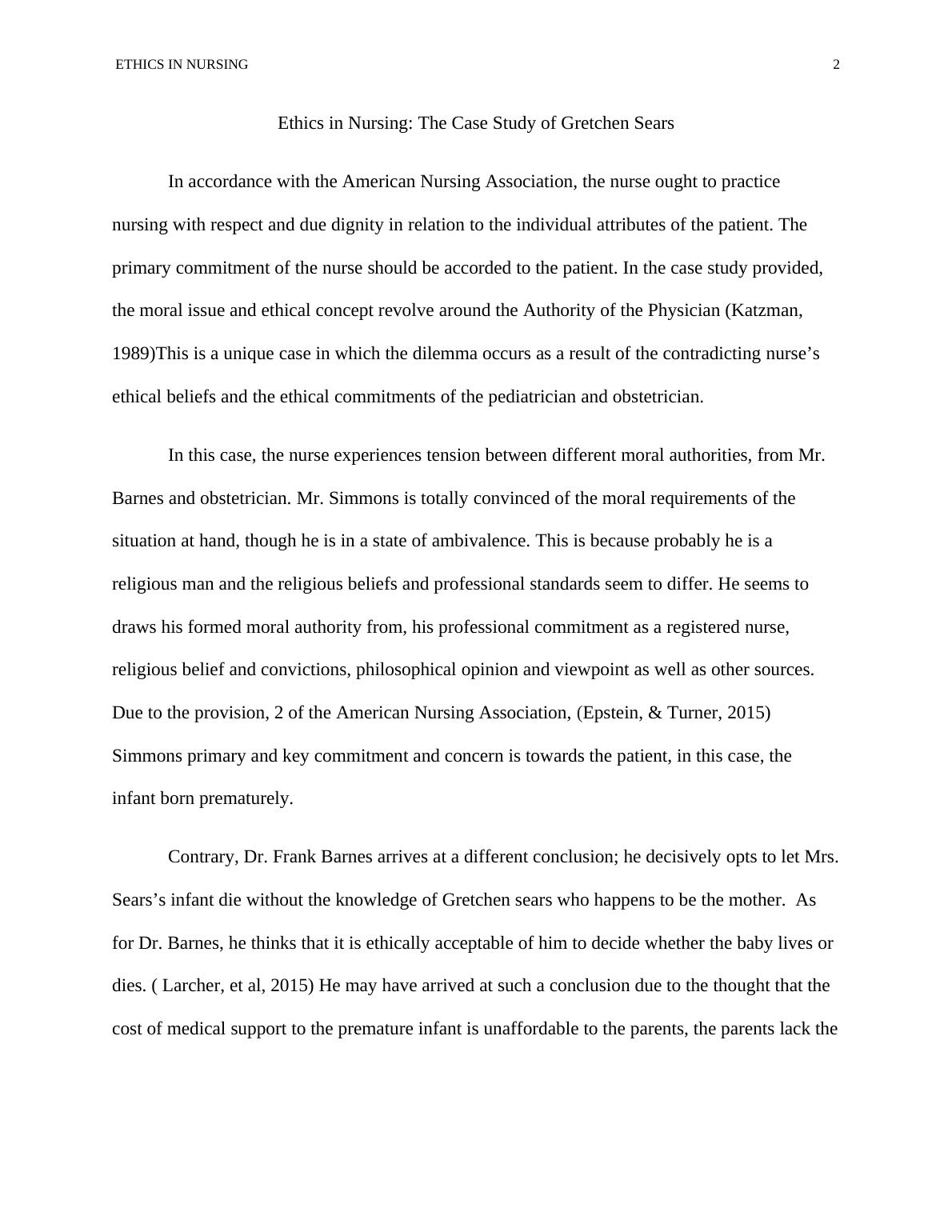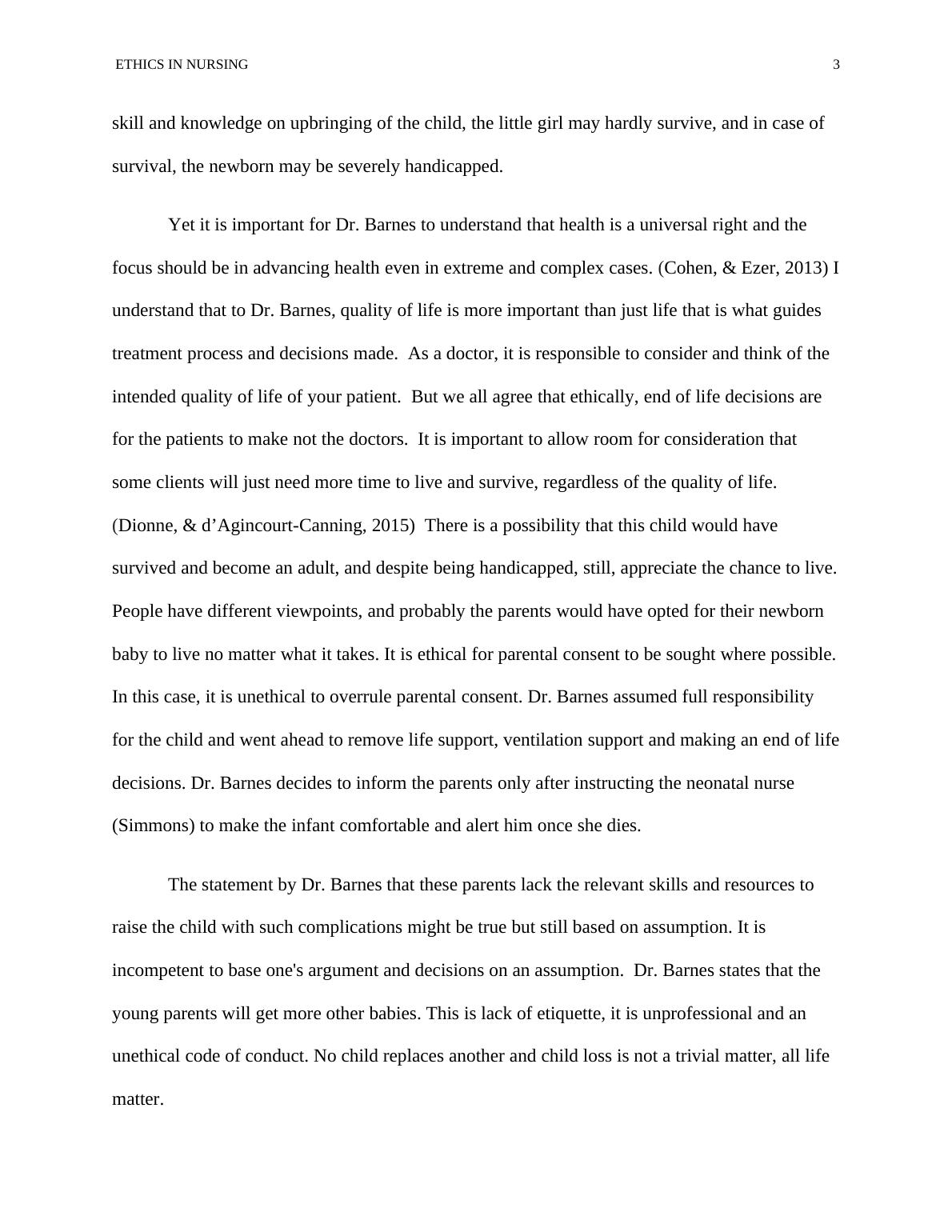Ethics in Nursing: Case Study
6 Pages1557 Words268 Views
Added on 2022-12-15
About This Document
This article discusses the ethical dilemma in nursing through a case study of Gretchen Sears. It explores the conflicting moral authorities of the nurse and the physician and emphasizes the importance of collaboration in decision-making. The article also highlights the need for parental consent and reliable information for making informed decisions about the newborn's health.
Ethics in Nursing: Case Study
Added on 2022-12-15
ShareRelated Documents
End of preview
Want to access all the pages? Upload your documents or become a member.
The Nurse as a Moral Spectator
|5
|1038
|142



